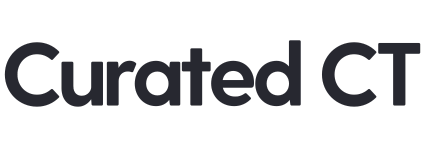Conversation with Mary Ruth Shields
Donald sits down with Mary Ruth Shields, owner of United Sewing & Design, to continue his journey to understanding more about textiles and manufacturing in Connecticut. We learn a bit of her origin story, the context in which she operates her social enterprise, and how Mary Ruth challenges us to think and act more sustainably.
I am going to go on a limb and say that we all have had a déjà vu like experience of meeting someone for the first time, realizing not only that there were things in common, but you instantly knew one another to the point where you didn’t need to explain yourself—they just got you. This is how it was for me when I first met my next guest, Mary Ruth Shields. Mary Ruth is the owner of United Sewing & Design and, in 2022, was recognized by the SBA’s Connecticut office as the small business manufacturer of the year.
Mary Ruth Shields, founder of United Sewing & Design, met with us to share her personal origin story, her values that drive her work, and talk through design details in products like our Farmers’ Market Tote—an exclusive, collaborative project with Curated CT.
I was first introduced to Mary Ruth by Sarah Bodley and our mutual connection with reSET in Hartford, Connecticut. I had discovered a supply of burlap sacks leftover from roasting coffee at Ashlawn Farm—who was very keen on finding good uses for them—and I wanted to learn more about what it would take to fashion a bag from upcycled materials. I remember feeling at home during my first meeting with Mary Ruth, who had come down one morning to walk me through her design process and see the coffee bag fabric for herself. She was as happy as I was to nerd out over materials, upcycling materials, and finding purpose in what is otherwise ordinary.
Back then, I did not know anyone who professionally sewed or made things—that weren’t aerospace or food related—and in making this recorded conversation, I could not help but recall moments of my childhood. Growing up, I had one of those dads who insisted on doing most everything themselves—from leaky faucets to renovating rooms, building a deck and a garage, to repairing a lawn mower. He once fixed a toaster by splicing a new electrical cord and plug. While most, I imagine, would have thrown it away and run to Walmart to buy a new one, that just wasn’t how it went at my house. In retrospect, I grew up when we transitioned from mechanical—more repairable—goods to more electronics-intensive, sensor-laden technologies. A time when having the latest version of something was—and is—at times more important than having any version at all. I think that’s why I appreciated listening to Mary Ruth, how calmly she can put things into a relatable context, and that she shared a little about how she goes about her ways—all the while acknowledging that it takes effort and that it’s not for the faint at heart.
This episode dovetails nicely with an earlier conversation with Matt Banever and my recent experience shopping for denim jeans with Hardenco. It continues in the themes of buying habits, consumerism, and sustainability.
We collaborated with United Sewing & Design—a woman-owned business right here in Hartford—to construct a long-lasting tote ready to hold anything from big leafy greens to soaps, candles, and other artisanal products we’re sure to discover at farmers’ markets. We cut no corners—unless you count the work done to prepare the upcycled nylon. Your dollars go directly to a team of highly-skilled sewers in here in CT and proceeds support the makers, growers, and artisans being featured in our upcoming Live Local Guide.
Show Notes
We discuss:
How do people learn your trade today—has that changed during the last 30 years?
The word “quality” gets thrown around a lot. What does quality mean for your work?
There are many different materials in the United Sewing & Design workroom. How can you make use of everything—remnants from past projects—in your effort to reduce waste?
What is upcycling all about?
United Sewing and Design is a “social enterprise.” What does that mean? How do you operationalize your values in your business?
Originally posted on May 15, 2023. Last updated on May 17, 2023.
Be sure to subscribe to our complimentary Curated Insiders email newsletter for updates, announcements, and promotions as we strive to live local and feel good.


